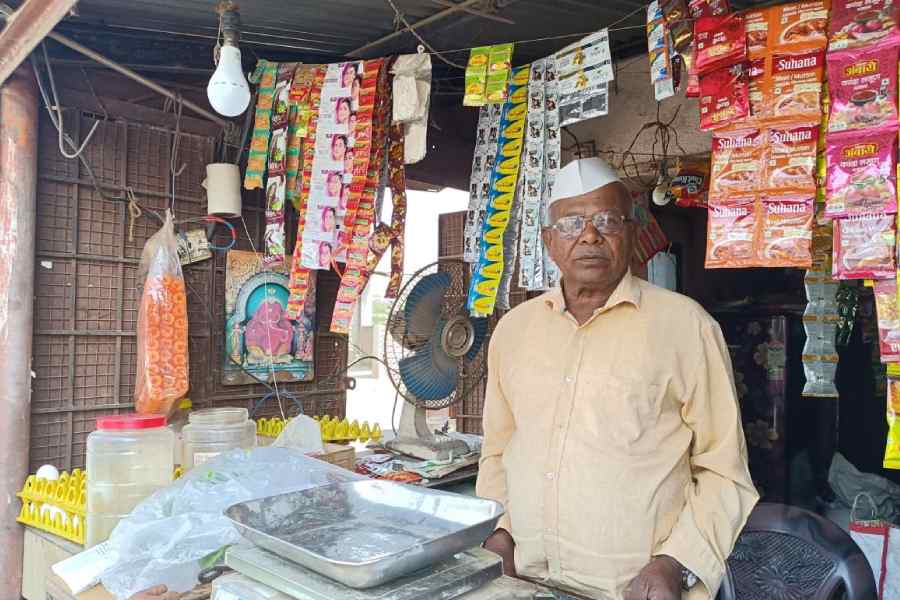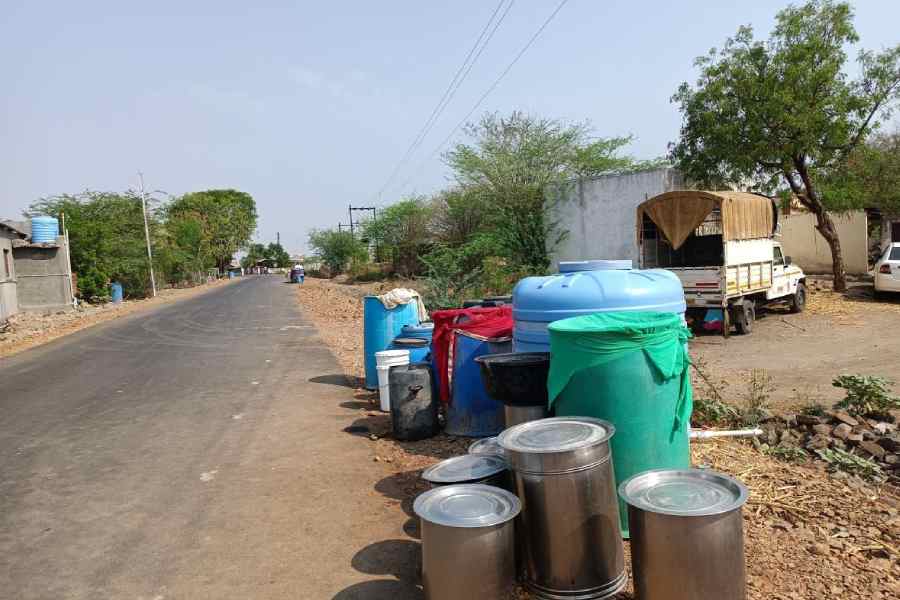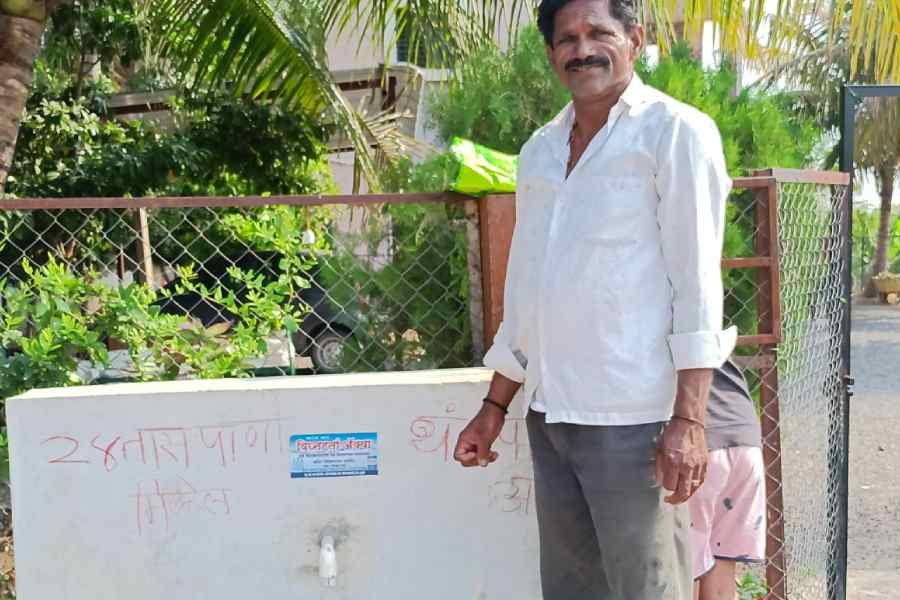If a hypothetical Marie Antoinette were to turn up at the tap in Baramati, she might well say: “If they don’t have water, let them drink wine.”
Wine, as always, has been flowing in Baramati — at least into bottles at its wineries, much of it to be exported to foreign shores. Closer home, in the villages of Baramati subdivision in Pune district, parched families have to virtually sip their water as if it were wine, there’s so little of it to drink or wash.
Baramati, known for its vineyards and dozens of winemakers, got into the business seriously about two decades ago. But the water crisis in this citadel of one of the country’s richest political families, the Pawars, has existed for decades and appears to residents to be getting worse every summer in the age of climate change.
Lines of empty plastic drums and utensils outside homes in roadside villages greet the visitor less than 30km before the swanky malls and car showrooms heave into sight in Baramati city.
They are waiting for the tankers despatched by the local panchayat samiti to provide a limited supply of “free water” to the families, the ration depending on their size. Just 200 litres is given to a small family, once in 8-10 days, sometimes after a longer duration, villagers say.
If people want more water — and they do — they must fork out to what some villagers described as the “tanker mafia”.
Residents of a cluster of some 23 villages in Baramati have been undergoing this ordeal for not years but decades.
More than five decades of domination by the Pawar family and the Narendra Modi government’s slogans of “har ghar jal; nal se jal” (tap water for every home) have left the villages high and dry, residents allege.

Jadhav at his grocery store in Karhati village JP Yadav
Pipes with taps have reached some of these villages but the water comes once in more than a week. That, too, for a couple of minutes, villagers say.
“How can even a small family of two or three people survive on 200 litres for so many days?” said Rupali, a homemaker in Karhati village, some 5km off the Pune-Baramati highway.
“So, we have to buy from the tanker mafia. They charge us ₹100 for 200 litres.”
In summer, with the groundwater low and ponds dry, the tanker water must serve for all washing and cleaning too.
“I am 75 and since I can remember, the water scarcity has remained the same,” said L.T. Jadhav, who has a small grocery in the village. “The politicians give assurances before every election, but no action is taken.”
The Pawar family has controlled Baramati ever since Sharad Pawar was elected MLA from here in 1967. The current Baramati MLA, who has won every election from here since 1991, is Sharad’s estranged nephew Ajit Pawar.
Sharad’s daughter Supriya Sule is the Baramati MP, serving her third term. She is up against cousin Ajit’s wife this time.
The split in the Pawar family and the Nationalist Congress Party (NCP), founded by Pawar Sr, has drawn national attention to this constituency — not for its water woes but for the high-voltage Pawar vs Pawar battle.
The Pawars are credited with transforming this sleepy, arid corner of Maharashtra into a prosperous sugar belt, and Baramati town into a modern-looking city. But the water crisis remains a blot on their record.

Drums await water tankers. JP Yadav.
As this correspondent was talking to villagers in Karhati, Sule’s campaign van arrived.
“Technical archan hai (There is some technical problem),” said Rekha Lonkar, vice-president of the NCP’s (Sharad faction) Baramati subdivision unit, when asked about the water crisis.
Lonkar blamed deputy chief minister and local MLA Ajit. “Pawar Saheb and his daughter (Sule) were busy with Delhi politics and had given the responsibility of looking after Baramati’s problems to Ajit Pawar.”
As villagers milled around the van to ask when their problems would end, a party leader accompanying Lonkar said: “Now Pawar Saheb and Sule Madam will take charge and this water crisis will be resolved.”
An angry Mahadev Jadhav told the NCP leaders that most of the villagers would not turn up to vote.
“No one wants to marry their daughter to anyone from this village because of this water crisis,” he said.
In Tardoli village, adjacent to the highway and 25km from Baramati, residents pointed to a huge pond that they said had been dry for two years.
“This pond used to supply water to 10 villages. But there has been no rain here for the past two years,” said Mohit Bapkar.
The water table in the villages has fallen below 300 feet and few can afford the cost of boring — nearly ₹1 lakh — the villagers said.
Some well-off villagers who have installed borewells close to the highway supply filtered drinking water to nearby villages at ₹5 per 20 litres, which is cheaper than the “tanker mafia” rates. But this is not available in the interior villages.
Sule has been receiving complaints about the water scarcity.
In an interview with The Telegraph, she acknowledged the crisis but blamed the current state government.
“I have been flagging this issue since December, tweeting and writing to the government, but no steps have been taken,” she said.
Baramati votes on May 7











